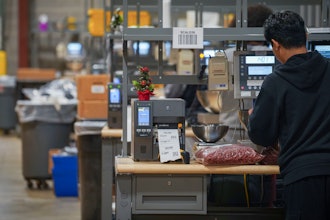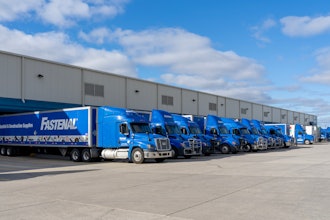
Wholesalers and distributors are part of the fabric of our economy, so as it improves so should their businesses. But growth isn’t assured — you have to work for it. So, if you’re eager to grow in the coming years, our most important piece of advice is this: miss nothing. You may be thinking, “Sure that sounds great, but it’s not doable — I can’t possibly keep track of everything.” Yes, you can.
So what do we mean by miss nothing? We’re referring to anything related to your business that generates or relies on information (data), from stock-on-hand and monthly sales to shipping schedules and on-time performance. These bits of information — and many more — have value individually, so having one-click access would obviously be valuable. But, all the information has exponentially more value in aggregate.
Once everything comes together you can readily see problems and opportunities others might miss. You might, for example, improve delivery performance by seeing problems with a supplier. Or you may discover a way to package products and create a new SKU that drives additional sales for your suppliers, something that could separate you from the competition.
In my previous article I wrote about how wholesalers and distributors can avoid getting squeezed out of the supply chain. Common sense compels most of us to take the most direct route to our destination, and that’s increasingly true for business as well. Shrinking profits have left many manufacturers and retailers looking for creative ways to bypass the middleman. And, thanks to technology, it’s easier than ever to do this. But technology is also available to wholesalers and distributors, and it can help them differentiate their offering and cement their place in the supply chain. It can ensure that they don’t miss what’s most important to keeping customers and finding new opportunity.
How likely is it that you’re missing an important signal from your business? Where would you look for these critical warning signs or windows of opportunity? The obvious answer is data, but it’s hard to analyze data if it’s in raw form (paper), in silos (Excel spreadsheets, for example) or non-existent (you don’t track it). Too many small companies see data as something only for bigger enterprises, however. Frankly that’s never been true – data is valuable to even a sole proprietorship, it’s just that only bigger companies could afford to analyze it. Now that’s also untrue.
A happy coincidence — the emergence of cloud technology, new business software built specifically for small businesses and an improving business climate has created unprecedented opportunity for smaller companies. This changes the game in many ways: fast ramp-up, where businesses can start using software within a week; monthly subscriptions, where you pay only for what you use — no strings; and simplified use — it’s easier than ever to compile and use data. You’ve been generating the data all along, now you can finally turn it into capital to grow your business.
Let’s say you’re the distributor for a small chain of US-based retail gardening stores. Supplying plenty of mulch, bulbs and other spring gardening inventory is second nature. Some may even use the same invoice year to year and simply change the pricing. But a data-driven distributor can go a step further and recommend — or bundle — complementary products based on data gathered from other locations. For an urban store, for example, the distributor may suggest container gardening supplies, while for suburban stores the special feature could be lawn care products.
Want a real example? Arno Fluitman owns a small Dutch company called Bricks2Play that distributes LEGO products globally. He built his company from scratch, starting with basic tools such as Excel spreadsheets. But as Bricks2Play grew, Fluitman felt he was missing something. His business needs were becoming dramatically more complex and he suspected, but couldn’t confirm, that lapses were occurring. His concerns ranged from inaccurate inventory levels and supplier schedules to outdated pricing that could ultimately mean the different between profit and loss.
Fluitman found his salvation in the cloud. By capturing and aggregating all his data — now distributed across multiple locations and time zones, he could finally see what he was missing. By bringing everything together in a single, secure platform, he now misses nothing. In fact, with alerts built into his system, he’s actually notified when something is missing — an even greater benefit. What’s more, he can access this information anywhere, from anyplace at any time, even from his smartphone.
No business sets out to miss things, but it happens, especially during periods of growth. Since you want more of those growth periods, it makes sense to prepare now. Today’s wholesale and distribution businesses operate in a system of increasing complexity, and fortunately technology exists to manage that complexity. But there will be winners and losers in the coming years, and if you don’t know what you’re missing — on a daily basis — you’re likely to miss out altogether.























